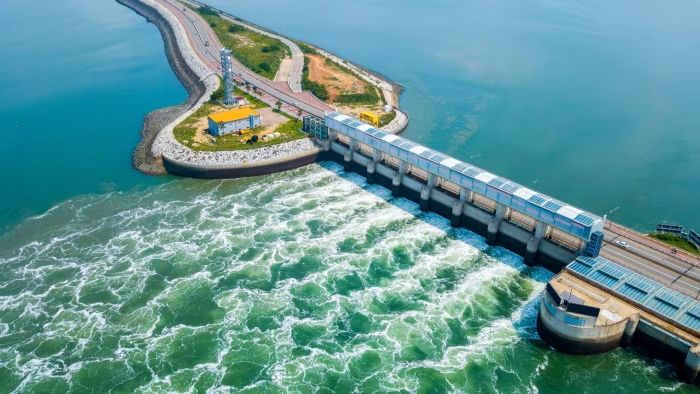There were 43 goals scored, five red cards handed out and six penalties awarded – of which five were converted.
It was a relentless evening of Champions League football on Tuesday.
Last season’s winners Paris St-Germain hit seven past Leverkusen,…

There were 43 goals scored, five red cards handed out and six penalties awarded – of which five were converted.
It was a relentless evening of Champions League football on Tuesday.
Last season’s winners Paris St-Germain hit seven past Leverkusen,…
This request seems a bit unusual, so we need to confirm that you’re human. Please press and hold the button until it turns completely green. Thank you for your cooperation!
This request seems a bit unusual, so we need to confirm that you’re human. Please press and hold the button until it turns completely green. Thank you for your cooperation!

Astronomers using the James Webb Space Telescope (JWST) have captured the most detailed look yet at how galaxies formed just a few hundred million years after the Big Bang – and found they were far more chaotic and messy than those we…

Papillary muscle scarring (papSCAR) as detected by dark blood delayed-enhancement cardiovascular magnetic resonance (CMR) was present in 1 in 3 patients with

Stay informed with free updates
Simply sign up to the Renewable energy myFT Digest — delivered directly to your inbox.
Developing large-scale tidal power stations in the UK would be likely to push up electricity costs, according to a study that marks the latest attempt to assess whether Britain should be making more of its geography by harnessing the tides.
While tidal technology could lead to a lower wholesale cost of electricity, that would be outweighed by subsidies and other costs, modelling by the state-owned National Energy System Operator found.
“The results show that when the total cost to the consumer is considered, including wholesale market costs, subsidy requirements and the impact on existing subsidies . . . the counterfactual scenario where no tidal range is included is the cheapest,” it said.
The report, published on Wednesday, recommends further exploration of financing models for the technology as well as a “strategic approach” to where any projects are developed, to get value for money.
Neso was taken over by the government in 2024 and given a wider remit including advising the government on energy policy.
The government is trying to develop new sources of low carbon power to meet its goal of decarbonising the power system by 2030 and the whole economy by 2050.
Electricity demand is projected to at least double by 2050 compared with 2023 levels, boosted by consumers buying more electric cars and heat pumps and more data centres being developed.
So far, Britain has taken advantage of its climate and its coastlines to become the world’s second-largest offshore wind market. But there have been persistent questions over whether it should be making more of its tides.
Neso’s report, undertaken in conjunction with Arup, looks at tidal range technology — barrages or lagoons that use high tides to drive a turbine. Tidal stream technology, by contrast, uses tidal currents to spin turbines underwater.
Both involve high costs and technological complications that have held back large-scale deployment in Britain.
In January 2018, Greg Clark, then business secretary, refused to approve taxpayer subsidies for a planned £1.3bn tidal lagoon in Swansea Bay, saying it would not deliver value for money.
That was despite an independent review into tidal lagoons published by former energy minister Charles Hendry in 2017, which concluded they could “deliver low carbon power in a way that is very competitive with other low carbon sources”.
Neso’s report compared scenarios involving different amounts of tidal range deployed in the 2030s and 2040s with a scenario without any tidal range at all. It found that total electricity system costs were more expensive than the counterfactual across all scenarios.
However, the effect was muted if the projects were built under a regulated asset base funding model, in which consumers start paying for the technology during construction. The idea is to reduce developers’ risks and therefore cut finance costs. This model is currently being used to develop the Sizewell C nuclear power station in Suffolk.
Electricity system costs are a major issue for the current Labour government. It has pledged to bring household bills down by £300 a year by 2030, despite widespread scepticism in the industry over whether this is possible.
One route would be to move the costs of subsidies and other policies off electricity bills and put them into general taxation, but that would be controversial given concerns about high costs across the economy.
The Department for Energy Security and Net Zero said: “We are open to considering well-developed proposals for harnessing tidal range energy in the bays and estuaries around our coastlines, which demonstrate value for money.”

No major bank has yet committed to stop funding new oil and gas fields or coal capacity, research has found.
Most banks that have recently updated their climate policies have weakened them, according to the research by the TPI Global Climate Transition Centre (TPI) at the London School of Economics and Political Science (LSE).
The centre analysed 36 of the largest banks by market capitalisation and total assets, and found “banks are still at an early stage of their transition with decarbonisation targets that cover a limited set of sectors and business activities.”
The researchers evaluated banks’ climate policies using 77 sub-indicators grouped into 10 areas, called the net zero banking assessment framework (NZBAF).
They found 95% of the scores remained unchanged year on year, and those banks that had shifted had weakened their policies. On average, banks score on only 18% of the 77 sub-indicators and the best-performing bank scores on about one-third of the sub-indicators.
The report said banks have “weakened their disclosures in areas such as net zero commitments, financing conditions for high-emission sectors and fossil fuel policies”. Some banks either fully withdrew or weakened their net zero commitments, substituting firm language such as “commitment” or “target” with less precise wording such as “ambition” or “aspiration”.
Algirdas Brochard, banking project lead at TPI, said: “Given banks’ central role in the economy and their far-reaching influence on climate, their slow progress on the climate transition coupled with the recent dissolution of the Net Zero Banking Alliance suggest that the objectives of the Paris agreement are slipping further out of reach.”
after newsletter promotion
As well as failing to stop funding fossil fuel projects, many banks are also not funding climate solutions and the green transition. Of the 36 banks TPI assessed, 17 have financing targets for climate solutions, but the activities eligible for this financing vary from bank to bank.
Another recent study found the world’s big banks have handed nearly $7tn (£5.6tn) in funding to the fossil fuel industry since the Paris agreement to limit carbon emissions.
This year, the Net Zero Banking Alliance shut down completely after leading banks quit it following the election of the US president, Donald Trump. It had encouraged members to cut the carbon footprint of their investments and help drive the transition to net zero emissions by 2050.

Imagine a sloth. You probably picture a medium-size, tree-dwelling creature hanging from a branch….